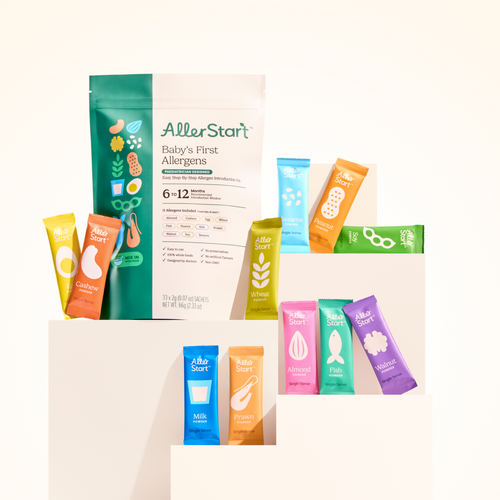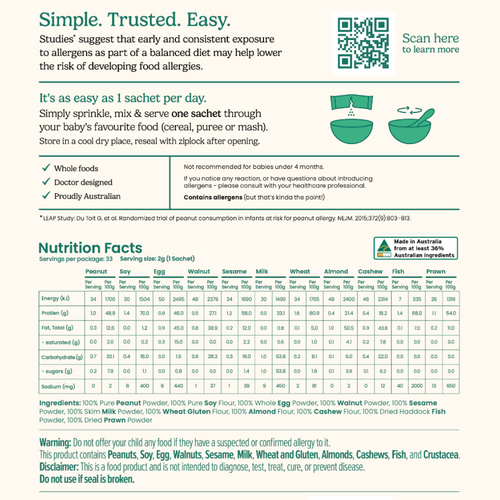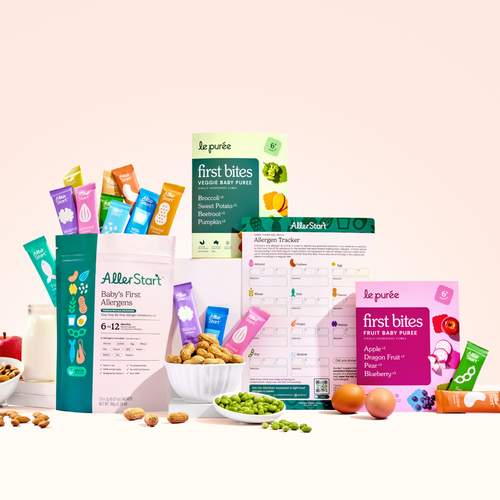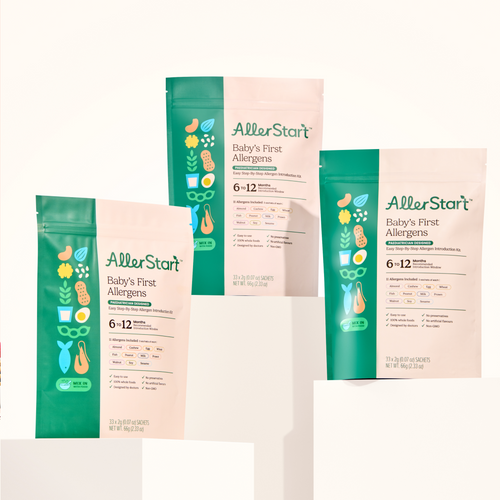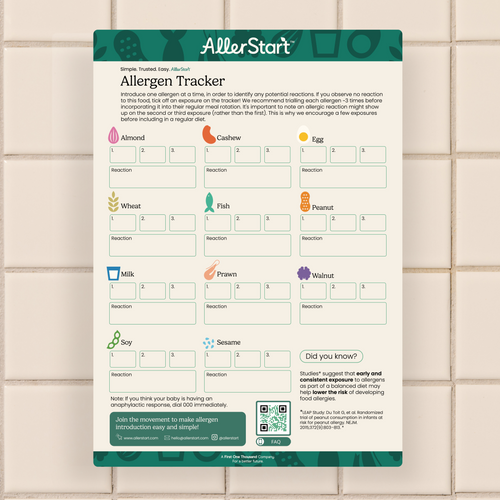By Dr Rob Mcleoad, Paediatrician and Co-Founder of AllerStart
Common Types of Food Allergies in Little Ones
Hey there, parents! Food allergies can be a bit tricky, especially when it comes to our little ones. Let's talk about some of the most common types of food allergies babies can experience:
- IgE-mediated food allergy: This type of allergy usually shows up quickly, typically minutes (on rare occasions it can be up to a few hours) after your baby munches on the allergen. Symptoms can range from mild (like hives or swelling) to more serious (trouble breathing or even anaphylaxis).
- Non-IgE-mediated food allergy: These delayed reactions can take hours or even days to pop up. They often involve the tummy, causing symptoms such as vomiting, diarrhoea, or abdominal pain.
- Mixed IgE and non-IgE-mediated food allergy: Sometimes, babies can have both immediate and delayed reactions involving both IgE and non-IgE mechanisms.
PICTURED: AllerStart Baby's First Allergens
Figuring Out the Allergen Behind the Reaction
When your baby has an allergic reaction, it's super important to figure out which food caused it. This is one of the hardest jobs for us doctors, when we see children with or following allergic reactions. Here are some tips to help you identify the culprit allergen:
- Keep a food diary: Jot down what your baby eats, when they eat, and any reactions they may have. This can help you and your healthcare provider spot patterns and potential allergens.
- Introduce new foods one at a time: As you start offering new foods to your baby, give them just one allergenic food at a time. This makes it much easier to pinpoint the cause of a reaction if one occurs. That's where AllerStart comes in! Our product introduces 11 of the most common food allergens, one at a time, to help you safely identify any potential allergies.
PICTURED: AllerStart Baby's First Allergens
Spotting the Signs of Allergic Reactions
Now, let's talk about how to recognise if your baby is experiencing an allergic reaction. Here are some signs to look for:
- Skin symptoms: Hives, redness, itching, or swelling
- Tummy troubles: Vomiting, diarrhoea, or abdominal pain
- Respiratory symptoms: Coughing, wheezing, or difficulty breathing
- Other symptoms: Irritability, lethargy, or a sudden drop in blood pressure (which can lead to pale or bluish skin, weakness, or fainting)
Remember, reactions can range from mild to severe, and they can happen quickly or take some time to develop.
What to Do if Your Baby Has an Allergic Reaction
If you suspect your baby is having an allergic reaction, here's what to do:
- Stay calm: It's easier said than done, but staying calm will help you think clearly and act quickly.
- Remove the allergen: If your baby is still eating the food, gently take it away from them.
- Call your doctor or seek medical help: If the reaction seems mild, call your family doctor or paediatrician for guidance. If it's more severe or involves difficulty breathing, call emergency services or head to the nearest hospital immediately.
- Call an ambulance immediately if there are signs of a severe allergic reaction (anaphylaxis), such as difficult/noisy breathing or your baby becomes pale and floppy, or if there is tongue swelling.
Allergic reactions usually occur quickly, within minutes to two hours, while other reactions to foods may be delayed.
It is important to note that minor redness around the mouth is most often due to skin irritation and is not usually due to an allergic reaction.
Understanding food allergies in babies is crucial for every parent. Knowing the types of allergies, how to identify the allergen, recognising the signs, and taking appropriate steps during a reaction will help.





